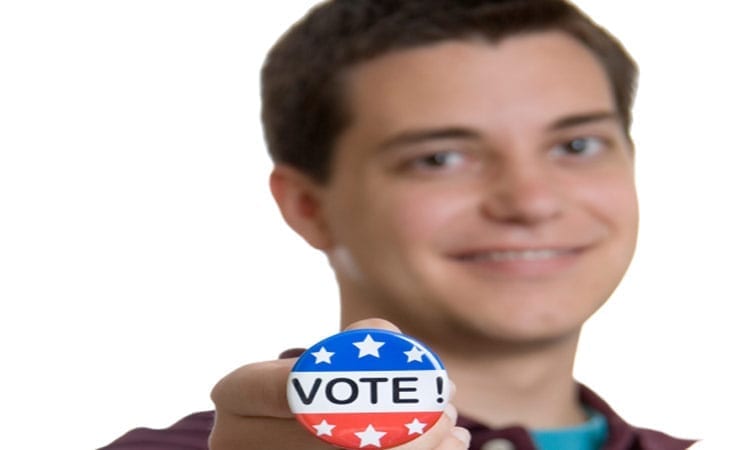I live in Washington, DC, where sightings and even conversations with politicians such as Hillary Clinton and President Obama are common. Maybe as a result, my three teenagers keep an eye on presidential campaigning. Even six months before the first caucus.
My 16-year-old daughter has been excited, literally for years, that she will turn 18 on November 1, 2016 – so she gets to vote in the 2016 presidential election days after her 18th birthday.
My older son, in our last dinner table conversation before he headed to college, expounded on what he hates and likes most about Donald Trump, with a level of detail and passion I could not begin to replicate.
Even my 13-year-old has opinions about Barack Obama (and what it would be like to be his daughters growing up in the White House).
Living in DC as a child myself, I too had the luxury of presidential politics in my back yard. I babysat for senators’ kids, and hung out at the White House, where a friend’s mom was one of Rosalyn Carter’s speechwriters. At 15, I had my own opinions, perhaps not exactly scholarly ones but opinions nonetheless, about Richard Nixon, Gerald Ford, Jimmy Carter and Ronald Reagan, the first presidents I can remember. Living in the nation’s capital is a good and easy way to grow up informed about our most important elected office; kids cannot avoid it.
But what to do to engage kids who don’t see the president’s motorcade on a weekly basis? And why should this be part of parenting?
First, when you think about presidential politics, remember children do actually care about many political issues. You just have to frame the issues in kids’ terms.
Presidential candidates have strong views on children’s education in the U.S., which affects kids mightily. Ditto for other issues that a lot of kids feel strongly about, including whether people can buy guns, pollution and climate change, does the current military policy mean they may be drafted, and does immigration policy mean kids and parents will be separated by deportation.
Second, we as parents should want our kids to care about, and follow, the presidential campaigns. One hundred twenty nine million Americans voted in the 2012 presidential election, a turnout rate of about 55%. Voter turnout peaked at about 80% from 1860 at the start of the Civil War through 1876, the first Centennial; our turnout is not that high today, but still, the majority of people vote. Every vote does count. It’s never too early to teach your kids to have an opinion and to share it, at home and in the voting booth.
Third, kids are not necessarily going to learn about presidential elections at school. Not all school curriculums still cover what we used to call “civics.” Or, like sex ed, your school may not teach politics in ways that sync with your values and views. Talking about the presidential election is a good and easy way to impart your views, in addition to what your kids learn in history or current events classes.
Lastly, the campaigns make for great dinner table conversations. What did Donald Trump say today? How many people attended the local Bernie Sanders rally? When will we have our first female president? Why is the voting age 18? Who would you vote for? Talking about presidential politics is education and history, disguised as entertainment.
Who would have thought: politics can be fun for the whole family. But it sure can.





